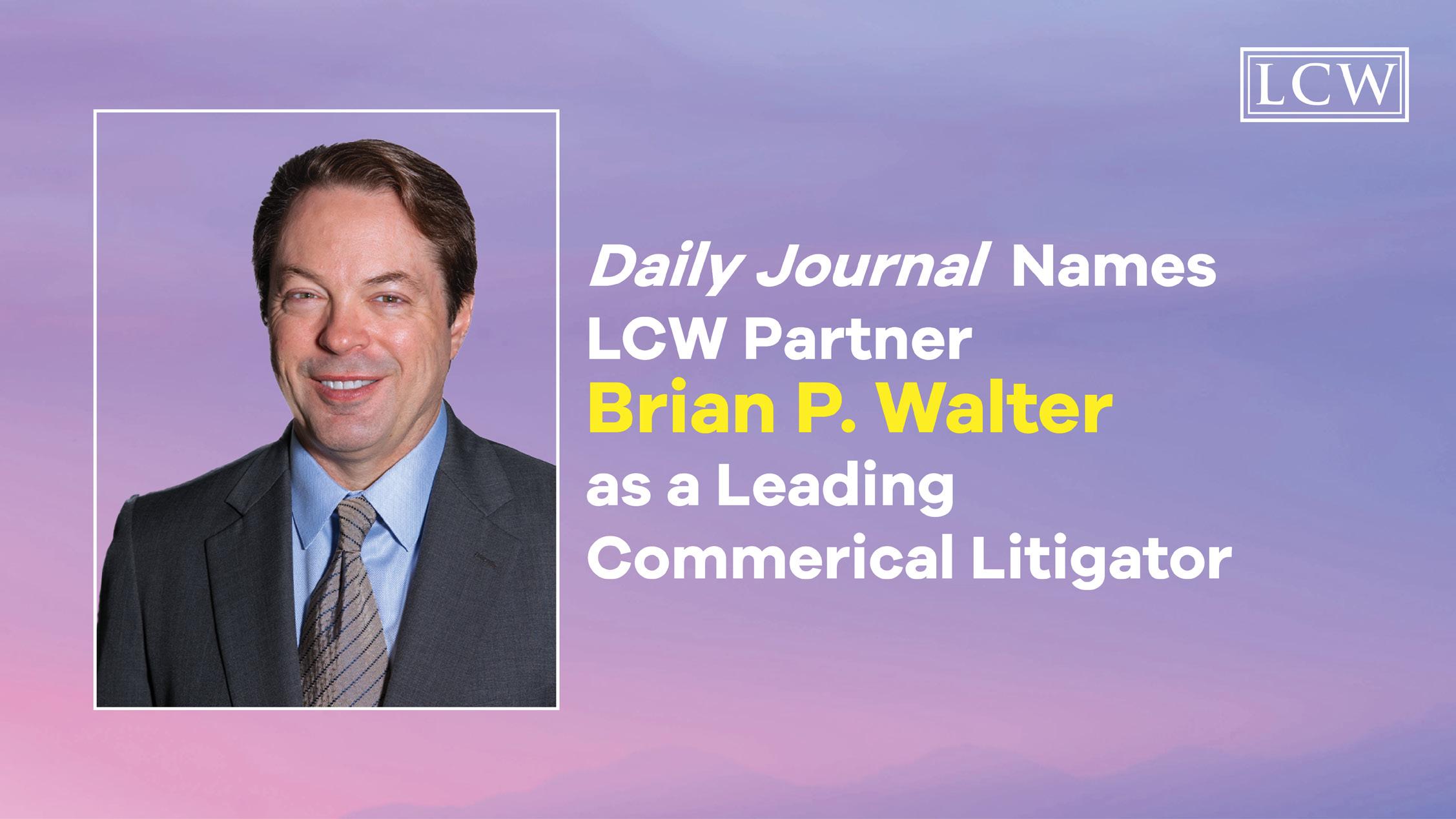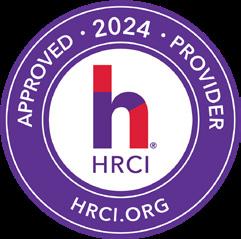




Amy
Jordan
Meredith
Senior
Stephanie
Senior
Madison


U.S. Department of Education Issues Dear Colleague Letter Threatening Loss of Funds for Colleges Engaging in Efforts to Circumvent Prohibitions on the Use of Race in Education by Relying on Proxies or Other Indirect Means to Make Decisions Based on Race.
On February 14, 2025, the Department of Education’s Acting Assistant Secretary for Civil Rights released a letter clarifying and reaffirming the nondiscrimination obligations of schools and other entities that receive federal financial assistance from the Department. Specifically, the letter addressed the Title VI prohibition of discrimination on the basis of race, color, or national origin in light of the U.S. Supreme Court’s 2023 decision in Students for Fair Admissions v. Harvard. The letter states that pursuant to Students for Fair Admissions, classifying and assigning students based on race is only lawful if it satisfies strict scrutiny, meaning it must be narrowly tailored—i.e., necessary—to achieve a compelling interest. The letter states that “diversity,” recognized in earlier Supreme Court decisions as a compelling interest in educational settings, as well as “social justice” and “equity,” are not compelling interests.
The letter that the Department interprets the Court’s opinion to prohibit the use of race in decisions pertaining to admissions, hiring, promotion, compensation, financial aid, scholarships, prizes, administrative support, discipline, housing, graduation ceremonies, and all other aspects of student, academic, and campus life. The letter admonishes schools against using students’ personal essays, writing samples, participation in extracurricular, or other cues as a means of determining a student’s race and favoring or disfavoring such students, as well as against using non-racial information as a proxy for race.
The Department announced its intent to enforce the law on equal terms as to all preschool, elementary, secondary, and post-secondary educational institutions, as well as state educational agencies, that receive financial assistance. The Department will begin applying the policy set forth in the letter to its enforcement of statutes and regulations on February 28, 2025.

The letter advises all Department funding recipients to review their policies consistent with the letter, as well as to cease efforts to circumvent prohibitions on the use of race by relying on proxies or other indirect means to accomplish such ends, or by relying on third-party contractors to do so.
It is not clear how, or if, the Dear Colleague Letter will affect California community colleges. Initially, we note that this is a Dear Colleague Letter and, as the document itself states in footnote 3, it is guidance that “does not have the force and effect of law and does not bind the public or create new legal standards.” Accordingly, the Letter does not supersede state law. In California, efforts to increase diversity must comply with California Constitution, Article I, Section 31, which prohibits colleges from discriminating against, or granting preferential treatment to, any individual or group on the basis of race, sex, color, ethnicity, or national origin.
The Dear Colleague letter appears to focus on programs with students, however, Title VI prohibits discrimination against anyone in a program which receives federal assistance. (42 U.S.C. 2000d-1, 2000d-3.) With respect to employment, districts are required to comply with Section 31, and thus Title VI. Pursuant to the Education Code, districts must prepare an Equal Employment Opportunity Plan (“EEO”), a local document that identifies ways the District can increase the diversity of the workforce. The plan describes how the District will provide recruitment strategies, training, and data analysis to increase diversity based on many protected categories, not just race, sex, color, ethnicity, or national origin. It does not grant a preference to or unequal treatment against any applicant or employee in any employment decision based on race, sex, color, ethnicity, or national origin.
All community college districts admit any students who apply and thus, do not discriminate on any protected activity. Districts do provide support programs that are generally needs based. The districts’ programs likely help students of color at higher rates, and it is possible an Office for Civil Rights (“OCR”) investigator could argue that these programs are a proxy for race. Examples of these programs are:
• Extended Opportunity Programs and Services (“EOPS”) is a program the California Community College Chancellor’s Office sponsors to help students who are socially, economically, or linguistically disadvantaged obtain academic and support counseling, financial aid, tutoring, among other supportive and financial services.
• EOPS students who are single parents receiving public assistance can also access the CARE program, an acronym for Cooperative Agencies Resources for Education. The CARE program offers additional support services so students can transition from welfare dependency by securing the education, training, and marketable skills needed for self-sufficiency and upward social mobility. Students are eligible for EOPS services if they are full time students, California residents, receiving monthly cash assistance from TANF/CalWORKs, SSI/SSP or General Assistance, and are educationally disadvantaged.
• As part of the California, CalWORKS program, students who qualify for state TANF or CalWorks cash assistance, are also eligible for academic counseling, priority registration, welfare to work advocacy, and workshops for professional development. This program is open to any student meeting the income eligibility requirements for CalWORKS assistance.
• The Puente program is another program the Chancellor’s Office sponsors (the University of California cosponsors the program) and is designed to help students transfer to a four-year university through offering mentoring, counseling, and academic support. This program is open to all students.
• The Umoja program “actively serves and promotes student success for all students through a curriculum and pedagogy responsive to the legacy of the African and African American Diasporas.” Umoja plays a significant role in the equity work in the community college system to close the achievement gap, especially for historically under resourced students.
• The Upward Bound/Trio program is a grant that the United States Department of Education administers to colleges to provide support to students who have completed the 8th grade, be between the ages of 13 and 19, and need academic support to succeed in college. To be eligible, students must be from low-income families or
be potential first-generation college students. The program provides academic and career advising, mentoring, information about scholarships, academic and financial aid workshops, and assistance with applying to colleges and university to students in this program.
While the above programs likely help students of color and other underrepresented backgrounds, they are needs based and open to all students without consideration of any protected category. They do not provide preferential or unequal treatment based on race, sex, color, ethnicity, or national origin.
If an individual makes a complaint to the OCR, there is a process for determining the validity to the allegation and how it is resolved. OCR first evaluates the complaint and determines whether to investigate. If OCR investigates and believes that a District violated Title VI, it will seek to obtain a resolution with the district. Districts can also seek mediation. If the OCR seeks to withdraw funds due to a finding against a district that cannot be corrected by informal resolution, it must follow the Code of Federal Regulations in doing so. (34 C.F.R. § 108.8.) 100.8 Procedure for effecting compliance. The regulations require the OCR to advise the district of its failure to comply and has determined that compliance cannot be secured by voluntary means, and “there has been an express finding on the record, after opportunity for hearing, of a failure by the applicant or recipient to comply with a requirement imposed by” Title VI. The hearing is an evidentiary hearing and is subject to judicial review. (34 C.F.R. §§ 100.9, 100.10.)
If your institution needs assistance with interpreting and complying with the Executive Orders and other material issued to Colleges, please contact our Los Angeles, San Francisco, Fresno, San Diego, or Sacramento office.
On January 29, 2025, President Trump signed an Executive Order (EO) titled “Expanding Educational Freedom and Opportunity for Families,” aimed at increasing school choice and expanding alternatives to K-12 public schools, including private, faith-based, and charter school options. President Trump also issued a fact sheet to accompany the EO.
The EO directs the Department of Education to issue guidance within 60 days on how states can use federal funds to support K-12 scholarship programs that provide families with alternatives to public schools. The EO also directs the Department of Education to prioritize school choice programs in the Department’s discretionary grant programs. Relatedly, the EO directs the Department of Education and Department of Labor to review discretionary grant programs and develop a plan within 90 days to prioritize funding for school choice initiatives.
The EO requires the Department of Health and Human Services to issue guidance within 90 days on whether block grants for children and families can be used to support private and faith-based educational alternatives.
The EO directs the Department of Defense to assess and report within 90 days on ways that military-connected families can use federal education funds to attend private, faith-based, or charter schools starting in the 202526 school year. Similarly, the EO directs the Department of the Interior to review and explore within 90 days the mechanisms for families of students eligible for Bureau of Indian Education schools can use federal education funds to attend private, faith-based, or charter schools starting in the 2025-26 school year.
On September 4, 2023, the Rocklin Unified School District (District) publicly posted its Board meeting agenda, including a proposal to amend Administrative Regulation 5020 (Parents’ Rights and Responsibilities) and Administrative Regulations 5145.3 (Nondiscrimination/Harassment). These amendments required teachers, counselors, or site administrators to notify parents within three school days if a student requested to use a name or pronouns different from their legal name or sought access to sex-segregated programs, restrooms, or locker rooms inconsistent with their sex assigned at birth.
Prior to the 2023-24 school year, the District had policies prohibiting discrimination against transgender and gender-nonconforming students. These policies allowed students to be addressed by their preferred name and pronouns and to use facilities that aligned with their gender identity. They also classified a student’s gender identity as private information, preventing school staff from disclosing this information to others, including parents, without the student’s consent unless legally required or necessary to protect the student’s well-being.
On September 4, 2023, Superintendent Roger Stock called Rocklin Teachers Professional Association (RTPA) President Travis Mougeotte and advised him to “probably look at the Board docs when they’re made public.” RTPA, the exclusive bargaining representative for certificated employees, immediately sent a letter to the District, demanding that the proposed amendments be withdrawn or, alternatively, that the District bargain over the effects of the policy before its adoption. On September 5, 2023, RTPA sent a follow-up letter to the District Board members, reiterating its demand to bargain. The District did not respond before the Board meeting on September 6, 2023.
At the Board meeting, attendance was exceptionally high due to public concerns over the proposed policy. Teachers, counselors, and community members participated in the discussion, with the majority opposing the amendments. The District Board voted
to adopt the policy changes, making them immediately effective.
On September 8, 2023, RTPA filed an unfair practice charge with the California Public Employment Relations Board (PERB), alleging that the District violated the Educational Employment Relations Act (EERA), Government Code section 3540 et seq., by failing to bargain before implementing the policy. The District responded to RTPA, offering to bargain only over the effects of the new policy, but not over the decision to adopt the policy. On October 6, 2023, the District formally refused to rescind the policy, insisting that only the effects of its decision were negotiable. In response, RTPA asserted that it would not negotiate effects unless the District first rescinded the policy, arguing that the policy itself was illegal and that requiring teachers to comply with it would force them to violate state law.
On September 7, 2023, a Placer County educator filed a complaint about the new policy with the California Department of Education (CDE), and CDE launched an investigation. On February 1, 2024, the CDE issued a formal ruling, finding that the District’s policy violated Education Code § 220, which prohibits discrimination based on gender identity. CDE ordered the District to cease enforcing the policy, notify staff and students that the policy would not be implemented, and provide proof of compliance within 10 school days.
The District sought reconsideration of CDE’s ruling. On March 27, 2024, CDE denied the request, reaffirming its finding that the policy unlawfully discriminated against transgender and gender-nonconforming students. The District refused to rescind the policy, so CDE filed a lawsuit seeking a court order to enforce its ruling. That litigation remains pending.
On January 11, 2024, the California Attorney General Rob Bonta issued a legal alert warning all California school districts that forced gender disclosure policies violate the California Constitution and state antidiscrimination laws. The Attorney General specifically noted that such policies unlawfully target transgender and gender-nonconforming students, and violate equal protection guarantees and students’ right to privacy under the California Constitution. The legal alert
emphasized that minors, like adults, have a constitutional right to privacy regarding their gender identity and that policies forcing disclosure to parents without student consent could not survive strict judicial scrutiny.
On July 15, 2024, Governor Gavin Newsom signed the Support Academic Futures and Educators for Today’s Youth (SAFETY) Act into law. The SAFETY Act, which took effect on January 1, 2025, explicitly prohibits school districts from passing policies requiring disclosure of a student’s gender identity without their consent. The law states that any such policy is automatically void and unenforceable.
PERB reviewed the case de novo, applying a four-part test to determine whether the District unlawfully changed working conditions without bargaining. PERB found that: (1) the District fundamentally altered existing policies, (2) the change fell within the scope of representation because it affected teachers’ and counselors’ job duties, (3) the policy had a continuing impact on employment conditions, and (4) the District failed to provide adequate notice and an opportunity to bargain. PERB also ruled that bargaining over the effects of the policy was invalid because the policy itself was unlawful, meaning RTPA was not obligated to negotiate its implementation. PERB found that the District’s refusal to bargain before adoption and its insistence on bargaining only over the effects of an illegal policy amounted to bad faith bargaining. PERB emphasized that school employees cannot be required to violate state law as a condition of employment.
PERB ordered the District to rescind the policy, cease making unilateral changes without bargaining, post a notice of the ruling at all District worksites, and notify PERB of compliance.
Rocklin Unified School District, PERB Dec. No. 2939-E (Jan. 28, 2025).




Hannah Casey, an Associate in the Los Angeles office of Liebert Cassidy Whitmore, where she supports clients with advice and counsel on education, labor, and employment law matters.
Nicole A. Powell, an Associate in the Los Angeles office of Liebert Cassidy Whitmore, where she provides advice and counsel on labor and employment law matters.
Jack Jackson, an Associate in the Fresno office of Liebert Cassidy Whitmore, where he provides legal counsel to public agencies on a wide range of municipal and employment law matters.
On June 2, 2021, parents Lori Ann Wiley and Charles Wallace Hanson arrived at a Kern High School District high school to pick up yearbooks for Wiley’s children. Hanson, who was driving, tried to park in a designated handicap space, but a school employee blocked the spot. Wiley and Hanson then engaged in a verbal altercation with District employees, including District Police Officer Michael Whiting and Campus Supervisor Sabrina Fowler. The dispute escalated as additional staff became involved. Eventually, a District employee handed Wiley the yearbooks and Wiley and Hanson left the campus.
The next day, June 3, 2021, Wiley emailed the school a formal complaint about the incident. On June 8, 2021, District Police Chief Edward Komin initiated an investigation into Officer Whiting’s conduct based on Wiley’s complaint. On June 15, 2021, a District compliance officer issued findings that at least one District employee had engaged in rude conduct and would be subject to corrective personnel action. The compliance officer also found that a District employee had made an inappropriate statement to Wiley, saying, “You are a horrible woman.” Wiley claimed the employee actually told her, “You are a horrible mother.”
On June 24, 2021, Officer Whiting submitted an incident report charges against Wiley for disturbing a public school or meeting, annoying a child under 18 years of age, challenging or fighting in public, using offensive words in public, and violating civil rights. Wiley later alleged that Officer Whiting’s report contained no evidence that could establish probable cause. Officer Whiting also prepared two probable cause declarations against Hanson, accusing him of multiple misdemeanors and felony vandalism. Officer Whiting did not prepare any probable cause declaration against Wiley.
On July 9, 2021, the Kern County District Attorney’s Office filed a criminal complaint against Wiley, charging her with three misdemeanors: disturbing the peace under Penal Code § 415, disturbing a public school or meeting under Education Code § 32210, and disrupting school activities under Education Code § 44811. On July 15, 2021, District Police Officers Luis Peña and Steven Alvidrez arrested Hanson at Wiley’s home, but they did not arrest Wiley. Instead, they issued her a citation.
During Wiley’s criminal prosecution, she obtained District emails through a public records request, including an April 29, 2021 email from a District employee who was not involved in the June 2, 2021 altercation. In the email, the District employee discussed Wiley’s request to “properly place her children,” and stated: “So good luck with this situation … Erika, you must be soooo happy to be able to walk away from this, although complaints go to HR! So you may get to talk to Lori on a daily basis. LOL! Let’s get this crap done and in place, people! I don’t want to have to lie to her on the phone anymore.”
At some point, Wiley asked the prosecutor handling her case why he refused to dismiss the charges despite what Wiley claimed was their lack of merit. According to Wiley, the prosecutor responded that District employees involved in the incident were angered because Wiley and Hanson had threatened a civil lawsuit against them. On January 3, 2022, after a mistrial, “the court dismissed all three charges in the furtherance of justice.”
On June 1, 2022, Wiley and Hanson filed a civil lawsuit against the District and District police officers Whiting, Komin, Peña, and Alvidrez. On November 8, 2022, Wiley and Hanson voluntarily dismissed their claims against the District and Officer Komin. On December 15, 2022, Wiley filed a Second Amended Complaint (SAC), asserting claims under 42 U.S.C. § 1983, the Tom Bane Civil Rights Act, and common law torts, including intentional infliction of emotional distress and negligence.
42 U.S.C. § 1983 provides a cause of action against government officials, including police officers, for violating a person’s constitutional rights under color of law. Wiley alleged that District officers violated her First and Fourteenth Amendment rights by retaliating against her for speech and causing her to be criminally charged without probable cause. The Bane Act prohibits anyone from interfering with or attempting to interfere with another person’s constitutional or statutory rights through threats, intimidation, or coercion. Wiley claimed that District officers violated the Bane Act by maliciously prosecuting her in retaliation for her filing a complaint.
Government Code § 815(a) establishes that public entities in California are only liable for injuries when expressly permitted by statute. District officers argued that since Wiley’s claims were barred because she did not base them on a statute authorizing liability. Government Code § 821.6 grants immunity to public employees for actions related to initiating or prosecuting judicial proceedings, even if done maliciously. The officers argued that this immunity applied to their decision to recommend charges against Wiley.
On January 17, 2023, the remaining defendants filed a demurrer, asking the court to dismiss the case. The trial court sustained the demurrer, dismissing most of Wiley’s claims without leave to amend. On September 20, 2023, Wiley requested a judgment of dismissal, which the trial court granted. Wiley then appealed.
The court of appeal affirmed the dismissal of most claims but reversed on one issue. The court of appeal
ruled that Wiley failed to state a valid claim under the Bane Act, as she did not allege that Officer Whiting’s report recommending charges was motivated by retaliatory animus. The court further held that malicious prosecution alone does not constitute coercion under the Bane Act. Even if Officer Whiting’s report resulted in Wiley’s prosecution, Wiley failed to allege that Officer Whiting knowingly submitted false information or intentionally sought to cause her harm.
The court of appeal also rejected Wiley’s claim of First Amendment retaliation, finding that she did not sufficiently describe the content or intended audience of her speech. Without that information, the court found no basis to conclude that the officers acted in retaliation for protected speech.
The court of appeal upheld immunity defenses for the officers, rejecting Wiley’s argument that a 2022 amendment to the Bane Act eliminating police officer immunity should apply retroactively. The court of appeal found no evidence that the Legislature intended for the amendment to apply retroactively.
However, the court of appeal reversed the trial court’s dismissal of Wiley’s 42 U.S.C. § 1983 claim, ruling that the trial court erred in denying Wiley leave to amend. The court of appeal determined it was possible Wiley could allege additional facts to support a constitutional violation. The court of appeal remanded the case for further proceedings limited to Wiley’s § 1983 claim.
Wiley v. Kern High School Dist. (2024) 107 Cal.App.5th 765.




Since taking office, President Trump has issued a series of executive orders, several of which have direct implications for public agencies, including institutions of public education. Our firm has published special bulletins analyzing these executive orders and their potential impact on our clients.
Below are some recent executive orders issued in late January that may be of particular interest to institutions of public education:
• Executive Order: Protecting the American People Against Invasion. On January 20, 2025, President Donald Trump signed this Executive Order (EO), which makes significant changes to U.S. immigration enforcement. View our special bulletin here.
• Executive Order: Ending Illegal Discrimination and Restoring Merit-Based Opportunity. On January 21, 2025, President Trump issued this Executive Order (EO), effectively prohibiting federal agencies, contractors, subcontractors, and federal grant recipients from implementing policies that allow for race- or sex-based preferences. Within 120 days of the January 21, 2025 EO, the U.S. Attorney General and Secretary of Education will issue guidance to all State and local educational agencies that receive federal funds, and educational institutions that receive federal grants or participate in federal student loan assistance under Title IV of the Higher Education Act to ensure that such institutions comply with the mandates of the EO, and do not promote race- or sex-based preferences in their policies. View our special bulletin here.
• Executive Order: Ending Radical Indoctrination in K-12 Schooling. On January 29, 2025, President Trump signed this Executive Order, which outlines policies addressing ideological content in education. The EO also directs the Attorney General to collaborate with State and local prosecutors to enforce laws against school officials who engage in unlawful medical practices, conceal information from parents, or promote “social transitions” (i.e., the process of adopting a “gender identity” or “gender marker” that differs from a person’s sex) without parental consent. View our special bulletin here
• Executive Order: Additional Measures to Combat Anti-Semitism. On January 29, 2025, President Trump issued this Executive Order (EO), which reinforces prior federal efforts to address anti-Semitic discrimination, particularly in educational institutions. President Trump also issued a fact sheet to accompany the EO. This EO directs the Departments of Education, Justice, State, and Homeland Security to report within 60 days on civil and criminal enforcement measures available to address anti-Semitic discrimination at colleges and universities. Additionally, these agencies must develop recommendations for monitoring and reporting activities by foreign students and staff at institutions of higher education who may fall under the grounds for inadmissibility under U.S. immigration law. View our special bulletin here
In light of the volume and rapid issuance of executive orders, beginning in early February, LCW launched a weekly
roundup of new executive orders that may impact public agency clients, including those in public education.
Our Week 1 Executive Order Roundup describes multiple EOs, including the following, which are likely to be of particular interest to educational institutions:
• Executive Order: Keeping Men Out of Women’s Sports. On February 5, 2025, President Trump issued an Executive Order (EO) restricting participation in women’s sports to individuals assigned female at birth. The EO directs federal agencies to review and potentially rescind funding from noncompliant educational programs. It also references broader federal grant restrictions outlined in EO 14168 (Defending Women from Gender Ideology Extremism), which requires agencies to ensure federal funds do not support “gender ideology.” The White House also published a fact sheet to aid in the implementation of its Order.
• DOJ Memorandum: Ending Illegal DEI and DEIA Discrimination and Preferences. On February 5, 2025, Attorney General Pam Bondi issued a DOJ memorandum directing the Civil Rights Division to investigate and penalize illegal diversity, equity, and inclusion (DEI) programs in federally funded educational institutions and the private sector. The memo builds on EO 14173 (Ending Illegal Discrimination and Restoring Merit-Based Opportunity), which effectively prohibited federal government agencies, contractors, and federal grant recipients from instituting policies that allow for race- or sex-based preferences and specifically disapproved of diversity, equity, and inclusion (DEI) practices.
Our Week 2 Executive Order Roundup describes additional legal updates, including the following, which affect educational institutions:
• U.S. Department of Education Dear Colleague Letter on Race-Based Discrimination. On February 14, 2025, the Department of Education issued a Dear Colleagues Letter reaffirming that schools receiving federal funds cannot discriminate based on race, color, or national origin. The letter states that race-based classifications in admissions, hiring, promotion, compensation, financial aid, scholarships, discipline, housing, and all aspects of campus life must meet strict scrutiny and that diversity, social justice, and equity are not compelling interests under federal law. The letter further clarifies that institutions cannot circumvent this prohibition by using personal essays, writing samples, extracurricular activities, or other indirect indicators to determine an applicant’s race and favor or disfavor students accordingly. The letter also warns against using non-racial factors as proxies for race, such as zip codes, high school demographics, or family background, in decisionmaking processes.
• Executive Order: Ending COVID-19 Vaccine Mandates in Schools. On February 15, 2025, President Trump issued this Executive Order, which prohibits federal discretionary funding for schools that require COVID-19 vaccinations for in-person attendance. The Secretary of Education must issue guidelines clarifying schools’ obligations regarding parental authority, religious freedom, disability accommodations, and equal protection. Within 90 days, the Department must identify federal grants to non-compliant institutions and develop a plan to end COVID-19 vaccine mandates.
Our Week 3 Executive Order Roundup describes additional legal updates, including the following, which is relevant to institutions of public education:
• Update: Federal Judge Blocks Enforcement of DEI Executive Orders. On February 21, 2025, a U.S. District Judge in Baltimore granted a preliminary injunction blocking the enforcement of two Executive Orders targeting diversity, equity, and inclusion (DEI) activity among federal agencies and recipients of federal funding. Specifically, the injunction blocks three key provisions of two Orders issued by President Trump in his first days in office: (1) a provision that required federal agencies to terminate “equity-related grants or contracts,” (2) a provision that required federal contractors and subcontractors to certify that they do not operate unlawful DEI programs, and (3) a provision directing the Attorney General to enforce civil rights laws against DEI programs in the private sector.
The U.S. Department of Education’s Office for Civil Rights (OCR) issued a Dear Colleagues Letter on January 31, 2025, announcing that it will enforce Title IX under the provisions of the 2020 Title IX regulations effective immediately. The Department will no longer enforce the 2024 Title IX regulations, which contained expanded protections to include gender identity, sex stereotypes, sex characteristics, and sexual orientation.
OCR also cited President Trump’s recently issued Executive Order, Defending Women from Gender Ideology Extremism and Restoring Biological Truth to the Federal Government. OCR noted that President Trump ordered all agencies and departments within the
Executive Branch to “enforce all sex-protective laws to promote [the] reality” that there are “two sexes, male and female,” and confirmed that the Department of Education and OCR will enforce Title IX consistent with this order.
The U.S. Department of Education issued a near Dear Colleagues Letter on February 4, 2025, with minor changes. More information can be found in LCW’s Special Bulletin: U.S. Department of Education Confirms Enforcement of 2020 Title IX Regulations.
LCW provides training for Title IX officers, administrators, faculty and staff, as well as support with complaints and investigations, forms, templates, and policies.
Plaintiffs are four community college professors (1 English, 1 History, and 2 Chemistry) who filed suit against District officials and the California Community Colleges Chancellor in federal court. They alleged the District’s incorporation of the statewide regulations that created a new Diversity, Equity, Inclusion, and Accessibility (“DEIA”) component into faculty evaluations in the Full-time Faculty Collective Bargaining Agreement (“CBA”) violated their right to free speech under the First Amendment. Plaintiffs contended the new DEIA evaluation component compelled them to adopt and advocate the District’s
position on DEIA issues that they disagree with. They alleged if they failed to satisfy the DEIA evaluation component, the District would discipline them and potentially terminate their employment. Plaintiffs relied on several guidance documents that they call “Implementation Guidelines” to support their challenge to the DEIA Regulations.
Specifically, Plaintiffs argued the new DEIA Regulations and Faculty CBA:
1. Constituted viewpoint discrimination because they favored “race-conscious and intersectional” viewpoints over the “color[-blind] and equality” viewpoints Plaintiffs embraced;
2. Compelled speech by forcing faculty members to “endorse the state’s perspective regarding DEIA against their own deeply held philosophical, moral, and religious views;”
3. Constituted a prior restraint on speech by restricting faculty member speech on DEIA principles and barring them from promoting contrary perspectives
4. Were constitutionally overbroad because the regulations restrict or prohibit teaching from “many great works of American literature, philosophy, law, or politics” because those works may go against DEIA ideals; and
5. Were constitutionally vague because the regulations do not adequately define DEIA terms and principles and could be interpreted differently by different audiences.
Plaintiffs also sought declaratory relief that the DEIA Regulations (and the Faculty CBA that incorporated them) were unconstitutional and injunctive relief to prohibit their enforcement against faculty.
None of the Plaintiffs had ever been disciplined or threatened with discipline, or had any other adverse actions taken against them because of the DEIA evaluation component they challenged.
The District defendants and State Chancellor moved to dismiss Plaintiffs’ complaint, arguing first and foremost that Plaintiffs lacked standing to challenge the DEIA Regulations and Faculty CBA. The District defendants pointed out that almost all of Plaintiffs’ complaints about the DEIA Regulations and the Faculty CBA derived not from those documents, but from the non-binding guidance documents Plaintiffs attached to their complaint that discussed various topics and teaching strategies related to DEIA in the education context. The District defendants further argued Plaintiffs could not establish any constitutional violations of the First Amendment even if they could establish standing.
The trial court never reached the substantive issues Plaintiffs raised because it determined Plaintiffs lacked standing to bring their pre-enforcement claims. The trial court ruled the DEIA Regulations and Faculty CBA did not incorporate or cite to the non-binding guidance documents that formed the foundation of Plaintiffs’ claims. The trial court noted that the Faculty CBA’s language did not preclude Plaintiffs from voicing different beliefs regarding DEIA principles. Thus, Plaintiffs failed to establish an adequate injury in fact to support standing to bring a pre-enforcement challenge to the DEIA Regulations and Faculty CBA. While the trial court dismissed Plaintiffs’ claim without prejudice, it specifically noted that a lack of standing meant the court was powerless to reach the merits of their claims and closed the case.

The severe wildfires and straight-line winds have devastated entire communities in the County of Los Angeles and other parts of southern California. Employers that would like to provide financial relief to employees impacted by the wildfires have the option to provide such benefit on a non-taxable basis under Internal Revenue Code section 139. Section 139 allows employers to provide “qualified disaster relief payments” to employees and other individuals on a tax-free basis. Qualified disaster relief payments include any amount paid to or for the benefit of an individual to reimburse or pay for reasonable and necessary personal, family, living, or funeral expenses incurred as a result of a qualified disaster. It also includes reimbursements or payments for reasonable and necessary expenses incurred for the repayment or rehabilitation of a personal residence or its contents that need to be replaced due to a qualified disaster. Federal, State, and local government agencies may also provide qualified disaster relief payments in order to promote general welfare for individuals in connection with a qualified disaster.
A “qualified disaster” includes a federally declared disaster. On January 8, 2025, President Biden declared that a major disaster exists in the State of California and ordered Federal aid. He amended the disaster declaration on January 13, 2025 to provide further federal assistance. Based on these declarations, the fires meet the criteria to be a “qualified disaster” since the President determined it to be a federally declared disaster that warrants assistance by the federal government.
Any public agency employers that provide qualified disaster relief payments to any of its employees or other individuals in need of this assistance due to the California fires can exclude such payments from the gross income of
the employee or individual. As a reminder, any qualified disaster relief payments are subject to meet and confer for any represented employee groups.
During a Presidentially-declared major disaster, such as the California wildfires, it is expected that employees adversely impacted by the disaster will need to take time off. While many employers are more familiar with employee leave sharing banks for medical emergencies, employers also have the option to establish employee leave sharing banks for major disasters. Such banks allow employees to donate their accrued and unused leave hours to other employees who have been impacted by a major disaster and need time off from work related to the disaster. If properly structured, the leave that one employee (the donor) donates to an employer-sponsored leave sharing bank for major disasters will be non-taxable to the donor employee, which is a positive incentive for employees who want to help others but not be taxed on their donations. The amounts paid to recipient employees are considered wages.
The key requirements for setting up a valid major disaster leave sharing plan are:
• The employer must have a written plan for its major disaster leave sharing program.
• Recipient employees must be adversely affected by a Presidentially-declared major disaster. The California fires have been declared a major disaster by President Biden. If an employee or their family member suffers a severe hardship caused by the disaster that requires the employee to be absent from work, the IRS will consider that employee as being adversely affected by a major disaster.
• Donor employees cannot designate or earmark their donated hours to a specific employee.
• Donor employees cannot donate more accrued leave hours than they would normally accrue for the year.
• The employer must make a reasonable determination, based on need, as to how much leave each recipient may receive plan.
• Recipient employees should be compensated when using the donated paid leave at their normal rate of pay and must use the leave for purposes related to the disaster.
• The plan adopts a reasonable limit, based on the severity of the disaster, on the period of time after the major disaster occurs during which a donor may donate leave in the leave bank (“donation period”).
• Any donated leave that is not used by the end of the donation period must be returned within a reasonable period to donors. The amount of leave returned to each donor must be proportional to the amount of leave donated by the donor compared to the total amount of leave donated for the major disaster.
• Recipient employees cannot convert the donated leave to cash.
Please note that such plans are subject to meet and confer for represented employees.
See the IRS Publication 15-A, Employer’s Supplemental Tax Guide and Notice 2006-59, 2006-28 I.R.B. 60 for more information.
On December 23, 2024, President Biden signed the Employer Reporting Improvement Act (H.R. 3801) into law. Applicable Large Employers should be aware of the following three changes related to the Affordable Care Act’s Employer Shared Responsibility Payment (“ESRP”).
First, the Act codifies the IRS’s practice of allowing employers to substitute an individual’s date of birth for the individual’s Tax Identification Number (“TIN”) on a Form 1095-C when the TIN is unavailable. Applicable Large Employers (“ALEs”) (employers with 50 or more full-time and full-time equivalent employees under the Affordable Care Act’s calculation) are required to prepare and file written statements describing the health insurance, if any, that the ALE offers to eligible employees. An ALE can meet this requirement by completing and filing a Form 1095-C for each eligible employee. In Parts I and III of Form 1095-C, employers have to input the SSN or other TIN for each employee and individual covered by the employer’s health plan. There is also an option to input the individual’s date of birth on the Form 1095-C. The Act formally approves the practice of allowing a date of birth to substitute for a SSN or other TIN on the Form 1095-C.
Second, the Act extends the time an employer has to respond to a Letter 226-J from 30 days to 90 days. A Letter 226-J is the initial letter the IRS sends ALEs to notify them that they may have violated the ESRP. It is important for any ALE that receives a Letter 226-J to timely respond to the IRS. Previously, the response time was a quick 30 days unless the IRS approved a request for an extension. In that short timeframe, ALEs had to gather information to respond to the IRS’s proposed assessment that the ALE had either not offered substantially all full-time employees minimum essential coverage or had offered coverage that was not affordable or did not provide minimum value. The Act now gives employers more time, 90 days, to respond to a Letter 226-J.
Third, the Act implements a six-year statute of limitations for the IRS to collect penalties under the ESRP. The sixyear period begins on the due date for filing a Form 1095-C, or, if later, the date the Form 1095-C was actually filed. Previously, there was no statute of limitations for the IRS to assess such penalties.
Question: What does it means when an agency’s policy providing leave under the Family and Medical Leave Act (“FMLA”) and California Family Rights Act (“CFRA”) states “an employee may elect and the agency will require an employee to use paid accrued leaves”?
Answer: When an employee uses family and medical leave, the leave is unpaid under the FMLA and/or CFRA. Any policy language that says words to the effect of “an employee may elect and the agency will require an employee to use paid accrued leaves…” is likely based on the FMLA and CFRA regulations, which allow either: (1) an employee to elect to use their accrued paid leaves to cover their otherwise unpaid FMLA/CFRA leave; or (2) an employer to require an employee use their accrued paid leaves to cover the otherwise unpaid FMLA/CFRA leave. (29 C.F.R. section 825.207(a); 2 C.C.R. 11092(b)(1).) The regulations allow these two different pathways – one from the employee’s election and one from the employer’s requirement – to substitute accrued paid leaves during otherwise unpaid FMLA/CFRA leave.
Each month, LCW presents a monthly benefits timeline of best practices.
• See LCW’s Special Bulletin regarding an optional exception where employers may skip furnishing Form 1095C and the complexities with using the exception. If not using the exception, furnish Form 1095-C to full-time employees by Monday, March 3, 2025. Retain a record that your agency furnished the forms to employees and copies of such forms.
• Prepare for the Monday, March 31, 2025 deadline to e-file Forms 1094-C and 1095-C. Retain a record of the forms and proof of the e-filing.
• If your agency would like an automatic 30-day extension to file Forms 1094-C and 1095-C, the agency must submit Form 8809 on or before the due date of the returns.

Visit our website for all our on-demand offerings: www.lcwlegal.com/events-and-training/ondemand-training
Members of Liebert Cassidy Whitmore’s consortiums are able to speak directly to an LCW attorney free of charge to answer direct questions not requiring in-depth research, document review, written opinions or ongoing legal matters. Consortium calls run the full gamut of topics, from leaves of absence to employment applications, student concerns to disability accommodations, construction and facilities issues and more. Each month, we will feature a Consortium Call of the Month in our newsletter, describing an interesting call and how the issue was resolved. All identifiable details will be changed or omitted.
A Community College District client asked LCW whether the District was required to accommodate an applicant who requested an accommodation due to a medical condition for their interview.
The LCW attorney advised the client the District should engage in an interactive process to determine whether it should provide an accommodation to the applicant. The District should engage in a back-and-forth communication to determine if the applicant requires a reasonable accommodation in order to participate in the interview process. This involves discussing the applicant’s specific need and explore possible accommodations that can be made without causing undue hardship.
Navigating Developments in Wage and Hour Laws in 2025
March 4, 2025
10:00 a.m. - 11:00 a.m.
What Labor Code Sections Apply to the Public Sector?
June 9, 2025
10:00 a.m. - 11:00 a.m.

Visit the above links for more information.

To view this article and the most recent LCW attorney-authored articles, please visit: www.lcwlegal.com/news.
• Recently published in Reuters and Westlaw Today, LCW Partner Mark Meyerhoff and Senior Counsel David Urban explore the doctrine of claim preclusion as a defense in lawsuits filed by faculty challenging their termination, particularly in cases involving academic freedom claims under the First Amendment. Meyerhoff and Urban explain how administrative hearings can serve as a critical defense, potentially barring subsequent litigation if the issues have already been adjudicated. They provide a hypothetical example illustrating how a faculty member’s lawsuit, claiming a violation of academic freedom, could be dismissed based on claim preclusion if the administrative process met fairness standards. Meyerhoff and Urban emphasize the importance of understanding this defense for public colleges and universities, advising institutions to leverage administrative hearings as a strategic tool to minimize the risk of costly litigation.

The LCW Labor Relations Certification Program is designed for labor relations and human resources professionals who work in public sector agencies. It is designed for both those new to the field as well as experienced practitioners seeking to hone their skills. Participants may take one or all of the classes, in any order. Take all of the classes to earn your certificate and receive 6 hours of HRCI credit per course! Join our upcoming HRCI Certified - Labor Relations Certification Program Workshops: March 13 & 20, 2025 - PERB Academy April 17 & 24, 2025 - Trends & Topics at the Table


The use of this official seal confirms that this Activity has met HR Certification Institute’s® (HRCI®) criteria for recertification credit pre-approval. Visit our website: www.lcwlegal.com/lrcp

